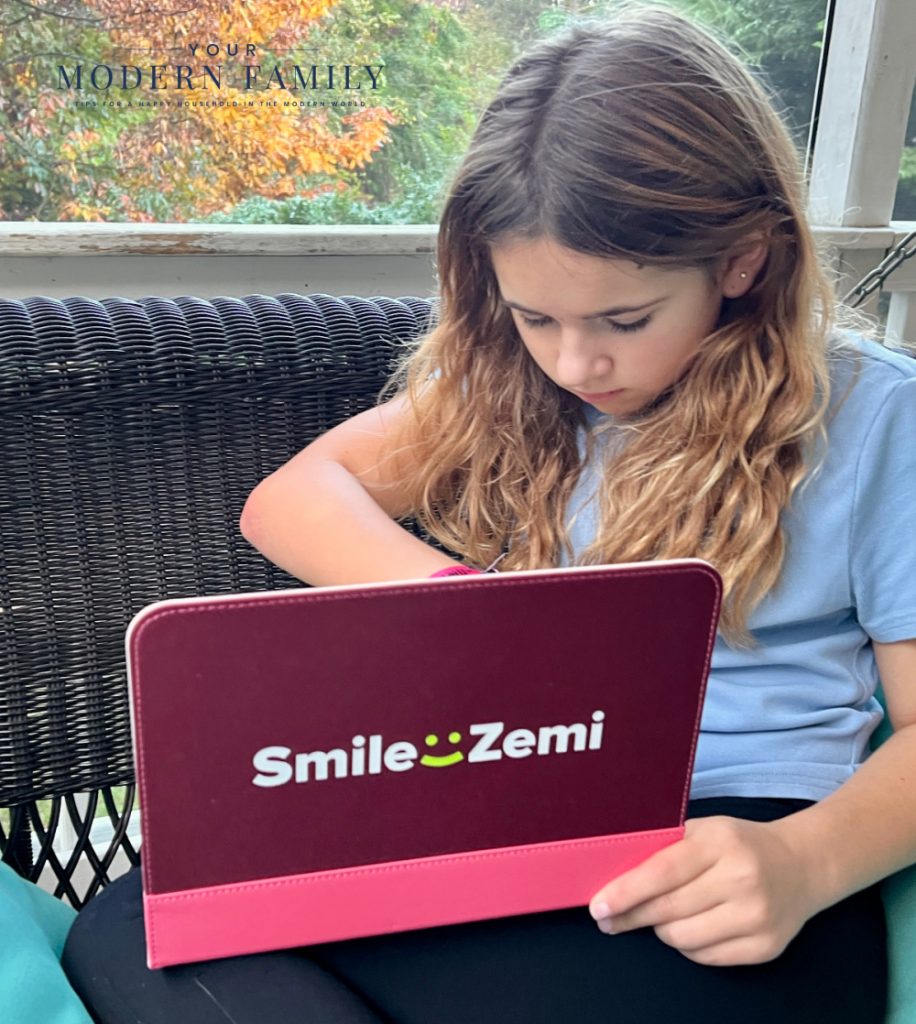Raising tweens and teenagers can be challenging, but there are a lot of amazing things about this stage too! Read this list and then create your own.

If there’s one phrase I would like to eliminate from our vocabulary, it is “just wait until they’re older.”
Being a mom of three girls, I hear this phrase often.
But as my kids grow, I struggle to see exactly why people make having older kids sound like a horrible experience.
- Is it difficult to keep food stocked in the house because they eat all the time? Yes.
- Do they stay up later than I do most nights? Yes.
- Are there grunts, sighs, and eye rolls, especially if I offer unsolicited advice? Yes.
I’m not saying raising tweens and teenagers is easy. Every stage of parenting has its own unique set of challenges.
I would like to encourage us to change the focus from the things that are difficult, to the things we love about parenting our kids. Yes, even our teenagers.
It’s natural and normal for kids to move away from their parents and gravitate more towards friends as they get older. And, as kids grow and mature, there are bound to be conflicts between how we see the world compared to our kids’ viewpoint. But, the transition into the teen years doesn’t have to be something we dread.
Here are 10 things I love about my older kids:
Independence. They can use the stove, do their own laundry, take a bike ride to the store and spend their own money on snacks. Each year, the list of tasks they can complete without help grows by leaps and bounds.
Complex thinking. We have deep conversations about a wide variety of topics. I do not need to be the expert, we can explore things together, even if we do not agree or do not come to a concrete conclusion.
Self-regulation. Rather than ending in a meltdown, the ability to manage big feelings shows up more often than not. It’s not always predictable, and it’s never going to be perfect, but it’s encouraging to see glimpses of maturity.
Creativity. I am constantly amazed by the things they create. Art, paint, woodworking, sewing, photography, film, and more. Plus, their knowledge and ability to navigate technology is always impressive.
Fun. I’ve never been great at imaginative play, so I’m thrilled that we’ve moved on to more active, adventurous, older-kid activities: Hiking, theme parks, coffee dates, movies, and even…shopping malls.
Problem Solving. They still vent and complain when faced with a challenging situation, however, they rarely look for my advice or solutions. Instead, all they need is a listening ear before they are ready to tackle the next steps.
Bravery. It’s not easy to go from elementary school to upper grades. They have to navigate friendships, teachers, homework, sports, and activities. It takes courage to speak up, reach out, and recognize when they need a break.
Humor. Growing up means we can share memes, watch YouTube, TikTok, comedies, and comedians together. These activities create positive memories, breaks the tension, and adds to our long list of inside jokes.
Uniqueness. While they struggle to balance fitting in and standing out, I am able to recognize and appreciate the things that make them special – their personalities, skills, talents, interests, and even growth areas.
They’re still little. Even though they may not advertise this information, they are still longing for connection. They appreciate being tucked into bed, they need hugs, and like to cuddle. They feel nostalgia for the books and shows they enjoyed when they were younger.
What’s on your list?
Reality check.
Just because I love these things, doesn’t mean life is smooth sailing. There are plenty of emotional ups and downs on a regular basis. Thinking through consequences, planning in advance, and organizational skills are still in process.
The teenage years ARE hard.
If you struggle to even begin a list of things you love right now, that is OK. You are not alone.
Sometimes, our tweens and teens need more support. Sometimes, they need a mental health professional or a team of professionals. Sometimes they need educational support, tutoring, a mentor, or guidance from another caring adult.
And sometimes, we, as parents, need support from a mental health professional, a community, or friends in order to parent our teenagers well.
In the midst of these challenges, I still encourage you to look for the good. Even if it’s small. Even if your list is just one thing. Not because looking for the positive will magically make life easier, but because your child – no matter how much they are struggling, how defiant or argumentative they are – wants to be seen, known, and loved.


